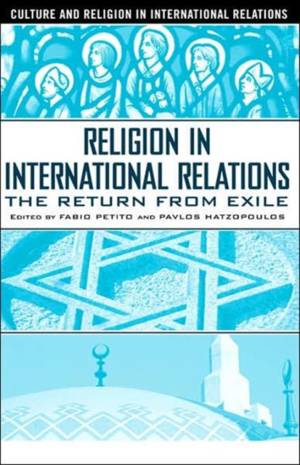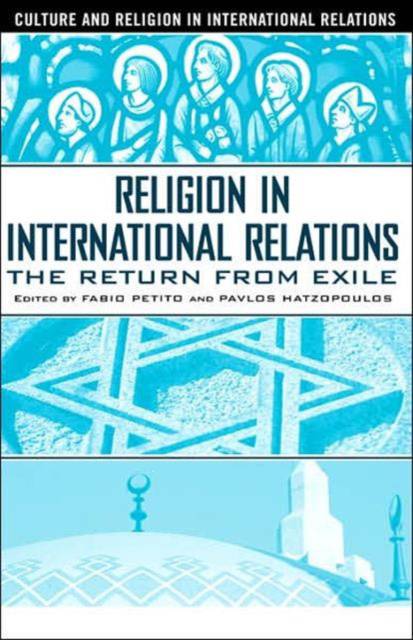
- Afhalen na 1 uur in een winkel met voorraad
- Gratis thuislevering in België vanaf € 30
- Ruim aanbod met 7 miljoen producten
- Afhalen na 1 uur in een winkel met voorraad
- Gratis thuislevering in België vanaf € 30
- Ruim aanbod met 7 miljoen producten
Zoeken
€ 167,95
+ 335 punten
Uitvoering
Omschrijving
Are the secular foundations of international relations sustainable at present? This comprehensive study shows how the global resurgence of religion confronts international relations theory with a theoretical challenge comparable to that raised by the end of the Cold War or the emergence of globalization. The volume tries to shake the secular foundational myths of the discipline and outline the need for an expansion into religiously inspired spheres of thought. It also challenges the most condemning accusation against religion: the view that the politicization of religion is always a threat to security and inimical to the resolution of conflict. Finally, the task of demystifying religion is taken further with an argument for a stronger and "progressive" political engagement of the worldwide religious traditions in the contemporary globalized era.
Specificaties
Betrokkenen
- Auteur(s):
- Uitgeverij:
Inhoud
- Aantal bladzijden:
- 286
- Taal:
- Engels
- Reeks:
Eigenschappen
- Productcode (EAN):
- 9781403962065
- Verschijningsdatum:
- 6/01/2004
- Uitvoering:
- Hardcover
- Formaat:
- Genaaid
- Afmetingen:
- 142 mm x 219 mm
- Gewicht:
- 435 g

Alleen bij Standaard Boekhandel
+ 335 punten op je klantenkaart van Standaard Boekhandel
Beoordelingen
We publiceren alleen reviews die voldoen aan de voorwaarden voor reviews. Bekijk onze voorwaarden voor reviews.











